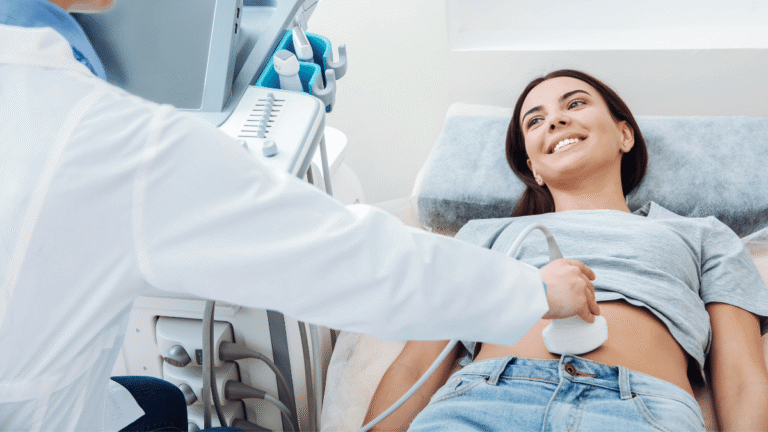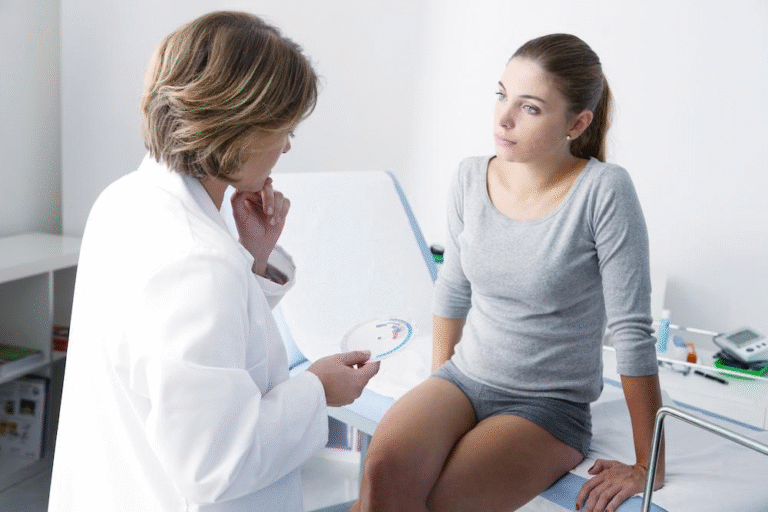What is a Pap Smear and Why It’s Important

When it comes to women’s health, there are a few tests that play a crucial role in early detection and prevention of serious conditions. One of those tests is the Pap smear—a simple and quick procedure that could save lives. But what exactly is a Pap smear? Why is it so important? And how often should you get one?
Let’s break it all down in easy words so you can fully understand what a Pap smear is and why every woman should take it seriously.
What is a Pap Smear?
A Pap smear (also called a Pap test) is a medical test used to check for abnormal cells in the cervix. The cervix is the lower part of the uterus that opens into the vagina.
This test helps detect precancerous or cancerous cells, meaning it can catch changes before they turn into something more serious like cervical cancer. It’s named after Dr. George Papanicolaou, who developed the test.
Why is a Pap Smear Important?
Here’s why the Pap smear is so important:
1. Early Detection of Cervical Cancer
Cervical cancer often shows no symptoms in the early stages, so it’s hard to detect without testing. A Pap smear can catch abnormal cells early—sometimes even before they turn into cancer. Early treatment = higher chances of a full recovery.
2. Prevention of Serious Health Issues
If abnormal cells are found early, doctors can treat or remove them before they become cancerous. This is how a Pap smear doesn’t just detect cancer—it helps prevent it.
3. Peace of Mind
Knowing that your cervix is healthy can provide emotional relief. Regular Pap tests give you one less thing to worry about and help you stay in control of your health.
Who Should Get a Pap Smear?
According to most health experts:
- Women aged 21 to 65 should get regular Pap smears.
- If you’re between 21–29, you usually need a Pap test every 3 years.
- From 30–65, you can do a Pap test every 3 years, or a Pap + HPV test every 5 years.
- If you’re over 65 and have had normal test results for years, your doctor might say you can stop testing.
It’s always best to talk to your doctor, as individual needs may differ.
What Happens During a Pap Smear?
The test is done in a doctor’s office or clinic. It usually takes less than 10 minutes and involves the following steps:
- You lie on an exam table with your feet in stirrups.
- The doctor uses a tool called a speculum to gently open your vagina and see the cervix.
- A small brush or spatula is used to collect a few cells from your cervix.
- These cells are sent to a lab to check for abnormalities.
It may feel a bit uncomfortable but should not be painful. You can go about your day as normal afterward.
Preparing for a Pap Smear
To get the most accurate results, follow these tips before your test:
- Avoid sex, douching, or using vaginal creams for at least 48 hours before the test.
- Try not to schedule your Pap smear during your period (especially if bleeding is heavy).
- Wear comfortable clothing for an easier experience.
If you’re nervous, let your doctor know. They can help make you feel more at ease.
What Do the Results Mean?
Pap smear results come back as either normal, unclear, or abnormal.
1. Normal
This means your cervix looks healthy, and no unusual cells were found. Great news!
2. Unclear
Sometimes the test doesn’t give a clear answer. Your doctor might ask for a repeat test or additional checks.
3. Abnormal
This means some cells don’t look normal. It doesn’t mean you have cancer. But it does mean you might need more tests—like a colposcopy (a closer look at the cervix) or a biopsy.
What is HPV and How is it Related?
The human papillomavirus (HPV) is a very common virus. Almost everyone who is sexually active gets it at some point. In most cases, it goes away on its own. But certain types of HPV can lead to cervical cancer.
That’s why some Pap tests are combined with an HPV test. Together, they give a clearer picture of your cervical health.
What If You’ve Had the HPV Vaccine?
The HPV vaccine protects against the most dangerous types of the virus. But it doesn’t cover all strains. Even if you’ve had the vaccine, you still need to get regular Pap smears to stay safe.
The Emotional Side of Pap Smears
For some women, the idea of a Pap smear can cause fear, embarrassment, or anxiety. These feelings are totally normal. Here are a few ways to make the experience more comfortable:
- Bring a friend if you need support.
- Tell your doctor if you feel nervous—they’re trained to help.
- Remember, this test is about your health and you’re in control.
5 Common Myths About Pap Smears
| Myth | Truth |
| Pap smears are painful | They may be uncomfortable, but they shouldn’t hurt. |
| Only sexually active women need Pap smears | All women over 21 should get tested, regardless of sexual activity. |
| A normal result means you never need another test | You still need regular screening. |
| If you’ve had a hysterectomy, you don’t need Pap smears | It depends—talk to your doctor. |
| You can’t get a Pap smear during your period | You can, but heavy bleeding may affect results. |
FAQs About Pap Smears
1. Is a Pap smear the same as a pelvic exam?
No. A Pap smear is a test to check for cervical cell changes. A pelvic exam is a physical check of your reproductive organs. They often happen at the same visit, but they are different procedures.
2. Can I get a Pap smear if I’m on my period?
Yes, but it’s better to schedule it when you’re not bleeding heavily, as that could affect the results. Light spotting is usually fine.
3. Do I still need Pap smears after menopause?
Yes. Women up to age 65 (and sometimes older) still need regular screening unless your doctor says otherwise based on your history.
4. How long does it take to get results?
It usually takes 1 to 3 weeks to get your Pap smear results. Your doctor will contact you if anything needs further attention.
5. What happens if my Pap smear is abnormal?
Don’t panic. It doesn’t mean you have cancer. Your doctor might do more tests to understand what’s going on and decide if treatment is needed.
Final Thoughts
A Pap smear is one of the easiest and most effective ways to protect your health. It’s quick, simple, and can catch early signs of problems before they become serious. Whether you’re 21 or 61, keeping up with your Pap tests is one of the most powerful steps you can take in staying healthy.
So, if you haven’t had a Pap smear in a while—or ever—talk to your doctor today. Taking care of your body is a sign of strength, not fear. Remember, it’s just a few minutes that could make a lifetime of difference.
Dr. Emma Green is a health and wellness expert with over 10 years of experience in nutrition and fitness. Passionate about helping others live their healthiest lives, Dr. Green shares practical advice on wellness, nutrition, and sustainable living through LivingSpristine.






